If you found this blog, you are one of the few who considers an obvious truth about the toxicants in our every day lives.
The chemicals impacting human health also have a harmful effect on our pets’ health.
Every day, your dogs and cats are exposed to the same toxic chemicals and heavy metals as every human on the planet. Heavy metals such as lead, mercury, cadmium, arsenic, aluminum and nickel deteriorate vibrancy and good health in humans and animals alike. Added to this toxic soup are common toxicants including pesticides, herbicides, phthalates, food additives, petrochemicals, other environmental toxins including solvents, volatile organic compounds (VOC’s found in paints), and medicinal drugs! I’m sorry to say - the list continues to grow as corporations produce products that are not tested, monitored or carefully regulated.
Detoxification for human health is popular now but just being born makes the risk of toxicant exposure severe.
If you’re disturbed by that number of chemicals, be relieved - it means you’re paying attention…
Here’s another harsh reality - 90% of these 85,000 chemicals rearranging our ability to thrive have never been tested for safety. These staggering numbers led to an estimated 287 toxicants present in the body of a newborn infant. And with current studies showing that human breast milk is one of the most toxic fluids ingested worldwide, how can a child thrive in ultimate health?
The combinations of toxic chemicals to which we and our pets are exposed act like a bomb decimating our bodies.
Individually, toxicants like mercury and aluminum already wreak havoc on our health. Cumulative additions of chemical upon chemical mix in our bodies to wreak havoc, inhibiting proper functioning.
If you’ve investigated detoxification, you’ve already been haunted by the horrors of other harmful combos of poisons like pesticides on our produce, phthalates covering packaged convenience foods, and, who could forget, bisphenol? AKA BPA’s - which are hormone disruptors affecting every endocrine organ in the body.
And then there’s GMO’s… a topic too big to discuss in this brief blog, but, they have invaded the world of all food, dragging along with them the horrible herbicides glyphosate, 2-4D (aka Agent Orange) and dicamba, to name a few. To dive deeper into this subject, I suggest watching Genetic Roulette-The Gamble of Our Lives by The Institute For Responsible Technology. To better familiarize yourself with glyphosate and what we're up against, read What Pet Parents Really Need to Know About Glyphosate.
It’s clear to those of us in clinical practice all of these toxicants have created a heavy load not just on us, but, also on our pets.
Studies have shown that our animals are impacted by hundreds more toxicants at much higher rates than humans.
Generally speaking, animals metabolize drugs at a slower rate than human beings - even slower than the fetus, infants, or the elderly.
We've learned a lot in recent years about the potentially negative effects of a high-starch diet for carnivores. Many caring pet parents learn this information, attempt to choose better species specific diets (you can learn all about what your pets really need in their diets by reading here), and see no results in their overweight or hypothyroid animals. They diligently give their pets the medications and supplements prescribed by trusted veterinarians with no noticeable results.
Why is nothing happening in this scenario?
Because toxicants are clogging up the works, so to speak.
Your animals are exposed to chemicals and substances which greatly impede their metabolism. These disruptive toxicants are hormone disruptors causing thyroid imbalance as well as affecting all the other endocrine organs.
Toxicants create inflammation throughout the body and damage the hormones which regulate appetite. As an example, the hormone leptin, which communicates to the brain when the tummy is full, can be blocked by heavy metals. So, the appetite is never satiated, balanced or complete. Excess weight is the result, further hindering overall health.

Dr. Dee's Detox Protocol
The combination of these three products is the start of a gentle detoxification process. Price: $139
First thing's first - start your Pet Detox strategy at home and clean up the toxicants in their food, water, environment - everywhere!
The organ which is most susceptible to toxicant exposure in pets is the largest one - skin!
The skin is the largest detoxification organ because of its huge surface area. The skin of human and non-human animals alike constantly sheds what doesn't serve the body. In this day and age, the skin is working overtime and could really use the help in removing metabolic wastes from normal living, street grime, and any other toxicant that isn’t expelled out the stool or the urine. Consider giving your animal a detox bath, a procedure available to you for free when you join my newsletter list. I also have a special course which goes into more depth about cleaning your pets' environment, along with a gentle detoxification protocol.
Here are some nutritive supplements you can add to your pets' lifestyle to give the internal detox organs the back up they need to clean out modern day toxicants:
Vitamin C could be the most important antioxidant for assisting the liver to naturally detox your pets' internal systems. While our pets are capable of producing Vitamin C on their own (we humans and guinea pigs cannot), who wouldn’t like a little extra when battling toxicant exposure? Mixed ascorbates are buffered, highly absorbable and, best of all, quite affordable! Camu camu and acerola berries are great, whole food plant sources of Vitamin C that are safe and easy to assimilate.
Amino acids are present in a high protein diet; however, when our pets need help detoxing, more of these protein building blocks add power to adequate detoxification. N-acetyl cysteine (commonly known at NAC), is another therapeutic way to improve detoxification by promoting the production of glutathione - the body’s master antioxidant.
B-complex vitamins produce high levels of energy to fuel the pet detox process. Specific B vitamins, particularly B6, B12, folate or folinic acid (not folic acid) are powerhouses - the professional movers in the detox process.
Milk thistle is well-known for its support of the liver in both the human and the pet detox processes! Milk thistle is pretty amazing stuff. Its use is rumored to date back to some of the original party animals of Ancient Rome to protect the liver from, well, you know! This flowering Aster protects the liver cells against toxicants and oxidative effects of those harmful chemicals. It also helps regenerate liver cells and stimulates protein synthesis. It is recommended to use this herb for brief periods of time only.
Friendly microbes, otherwise known as probiotics, give the GI tract a boost during the pet detox process. Nourishing the family microbiome and the gut mucosa will provide better immune protection and can actually help chelate heavy metals from the gut. Be sure to include various families of Lactobacillus, Bifidobacterium and, if possible, the friendly yeast Saccharomyces boulardii.
Unclogging your pets' natural filtration and detoxification systems takes time and patience.
We're accustomed to instant gratification at the click of a mouse pad or a tap of a phone screen.
Let me warn you now: Detoxification may take time.
Depending on the current level of health, age, and size of your animal, the detoxification process will vary. You should start to see results within a week or two, but, maintaining health and a clean body is an ongoing process to give your animal the best chance to thrive and live a long, happy, healthy life.
These small changes can still give your pet a detox jumpstart to help the body naturally shed harmful, everyday chemicals. Don't get discouraged! You are the only one who can give this gift of a healthy life in a toxic world to your pet - you CAN do this!
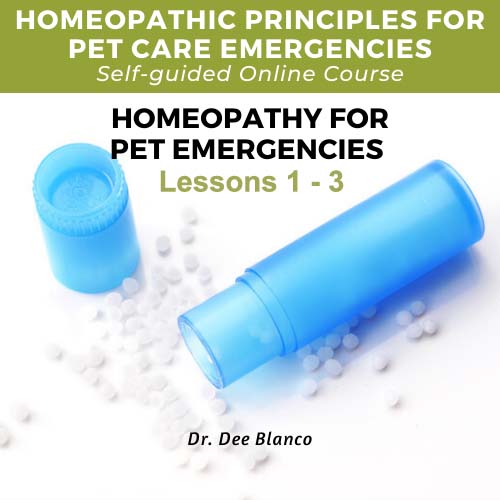
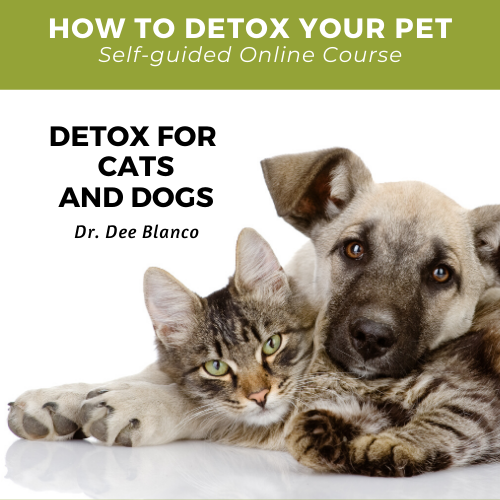
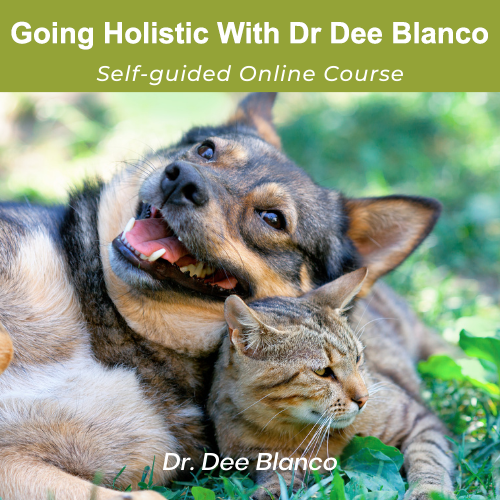


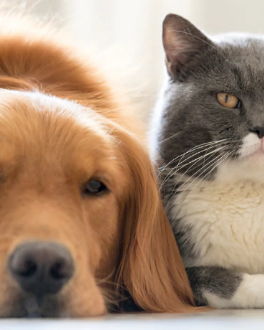
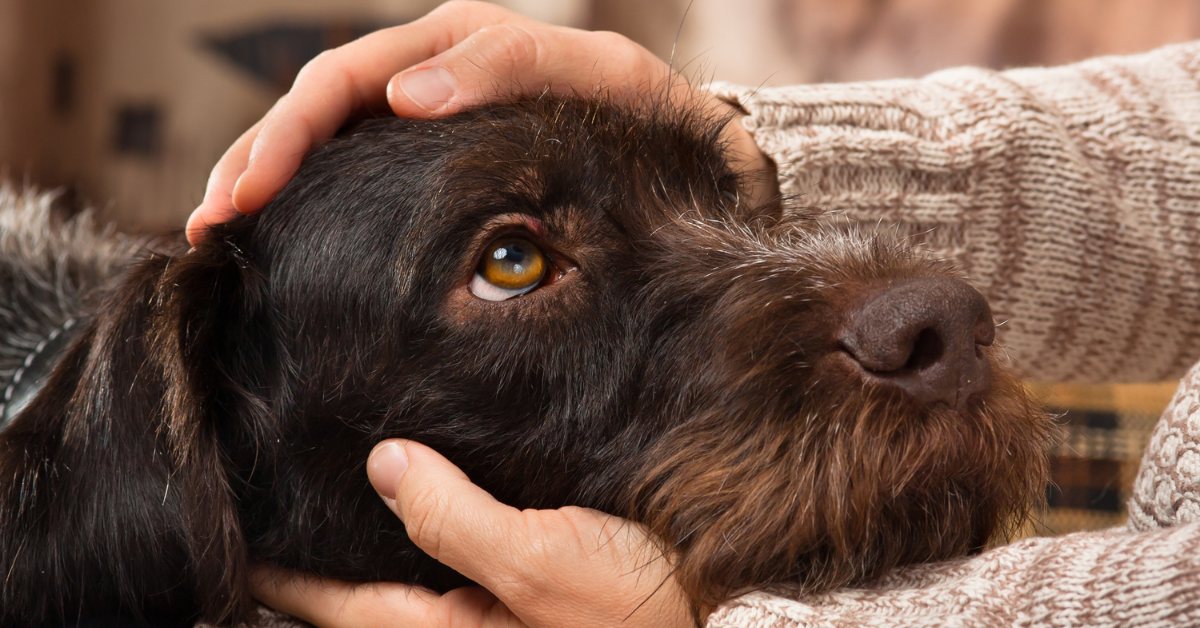
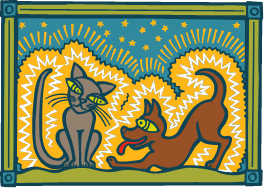


2 comments
Debora Caponi
I see the cost of 139.00, but are there a lot of other things I’m going to need to purchase to complete a detox? I just don’t have a lot to spend. Also, how often is a detox required?
Thank you!
———
Dr Dee Blanco replied:
Hi Debora,
The Detox Protocol is a very mild, gentle protocol that is inclusive in itself. Unfortunately there isn’t a way to get much effective detox with just one single product.
After doing Detox for animals for decades I put this simple protocol together from a company that I trust completely for quality and cleanliness of product (meaning – no contamination).
But, there are many ways to help the detox process this is just a nice start that can help anyone.
At this time of the year, which is what we call Liver Time in Chinese Medicine, it’s best to support the liver, and I have already started with these products myself. And I live a pretty darn clean life – but still know I can use some help.
I like to do a detox several times a year – again, this is simple so you don’t have to stop your life to do this. Your dog can continue anything, except poor foods, toxic water, etc…
I also have a product that I like for large dogs, after we have done the above mentioned Detox Protocol – it’s a powder with supplements to mildly help ongoing detox. I use it in my smoothies and dog’s food a couple times a week – that is maintenance.
I hope this helps and clarifies some things!
Best, Dr Dee
I see the cost of 139.00, but are there a lot of other things I’m going to need to purchase to complete a detox? I just don’t have a lot to spend. Also, how often is a detox required?
Thank you!
———
Dr Dee Blanco replied:
Hi Debora,
The Detox Protocol is a very mild, gentle protocol that is inclusive in itself. Unfortunately there isn’t a way to get much effective detox with just one single product.
After doing Detox for animals for decades I put this simple protocol together from a company that I trust completely for quality and cleanliness of product (meaning – no contamination).
But, there are many ways to help the detox process this is just a nice start that can help anyone.
At this time of the year, which is what we call Liver Time in Chinese Medicine, it’s best to support the liver, and I have already started with these products myself. And I live a pretty darn clean life – but still know I can use some help.
I like to do a detox several times a year – again, this is simple so you don’t have to stop your life to do this. Your dog can continue anything, except poor foods, toxic water, etc…
I also have a product that I like for large dogs, after we have done the above mentioned Detox Protocol – it’s a powder with supplements to mildly help ongoing detox. I use it in my smoothies and dog’s food a couple times a week – that is maintenance.
I hope this helps and clarifies some things!
Best, Dr Dee
Ellen
Thank you for all you do!
Thank you for all you do!